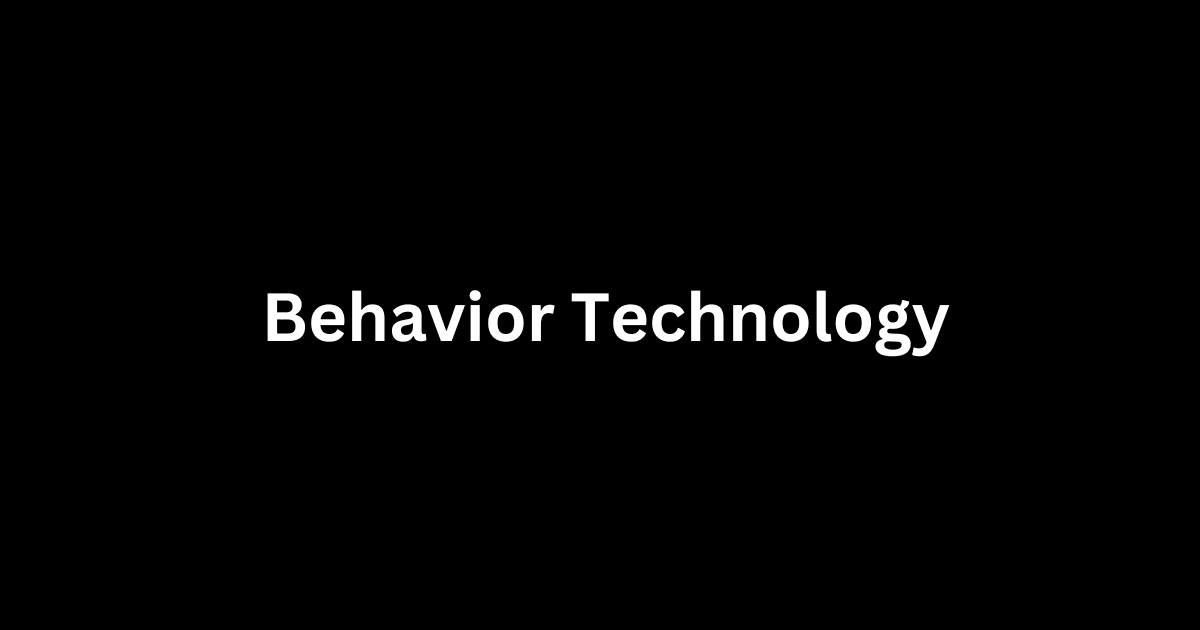behavior technology refers to the use of technology to study, influence, or modify human behavior. This can take many forms, including the use of wearable devices to track and analyze behaviors, the use of virtual reality or other simulations to study or modify behavior, and the use of social media or other online platforms to influence behavior.
Table of Contents
Some common applications of behavior technology include:
Health and wellness:
Wearable devices and apps can be used to track and monitor behaviors related to physical activity, diet, and sleep, and to provide feedback and coaching to help people make healthy lifestyle choices.
Education:
Virtual reality and other immersive technologies can be used to provide students with hands-on learning experiences and to study how different teaching methods and environments impact student behavior.
Marketing:
Online platforms and social media can be used to target ads and other marketing efforts to specific demographics or user groups, based on their behavior and interests.
Public policy:
Governments and other organizations can use behavioral technology to study and understand the impact of different policy interventions on behavior, and to design and implement programs that encourage desired behaviors.
Social good:
technology can be used to promote social causes and to encourage behaviors that benefit society, such as volunteering or environmental conservation.
Wearable devices:
Wearable devices, such as fitness trackers, can track a person’s physical activity and sleep patterns, and provide feedback and motivation to help them make healthier lifestyle choices.
Virtual reality:
Virtual reality technology can be used to simulate real-world situations and environments, allowing researchers to study how people respond to different stimuli and make decisions.
Social media:
Social media platforms can be used to collect data on people’s behavior, preferences, and interactions, and can be used to target individuals with personalized messages or advertisements.
Mobile apps:
Mobile apps can be used to track and influence people’s behavior in a variety of ways, such as by providing reminders, setting goals, and offering rewards for desired behaviors.
Behavior technology has the potential to improve people’s lives by helping them make healthier and more informed decisions. However, it is important to consider the ethical implications of using technology to influence behavior, and to ensure that it is used in a responsible and transparent manner
Behavioral economics:
This field uses principles of economics and psychology to understand how people make decisions and how those decisions are influenced by social and cognitive factors.
Behavior modification:
the approach uses principles of learning theory to modify unwanted behaviors by reinforcing desired behaviors and punishing undesired behaviors.
Applied behavior analysis:
This approach uses principles of psychology and education to modify behaviors in individuals with developmental disabilities or other challenges.
Persuasive technology:
This field uses principles of psychology and computer science to design technology that is intended to influence people’s attitudes or behaviors.
Neurotechnology:
This field involves the use of technologies, such as brain-computer interfaces and transcranial magnetic stimulation, to study and modify brain function and behavior.
Overall, the goal of behavior technology is to understand better and influence human behavior in order to improve people’s lives and society as a whole.
Frequently Asked Question
What is Behavioural technology?
behavior technology refers to the use of technology to study, influence, or modify human behavior.
How is behavioral technology used?
Behavioral technology, as one of the kind/type in its broad form, may be utilized to study and bring modification in the behavior of all living organisms
What is the basis of Behavioural technology?
The basic foundation is psychology for Behavioural technology. It is based on a software approach. Reinforcement and feedback are emphasized. It aims at producing effective teachers by modifying their behavior.
